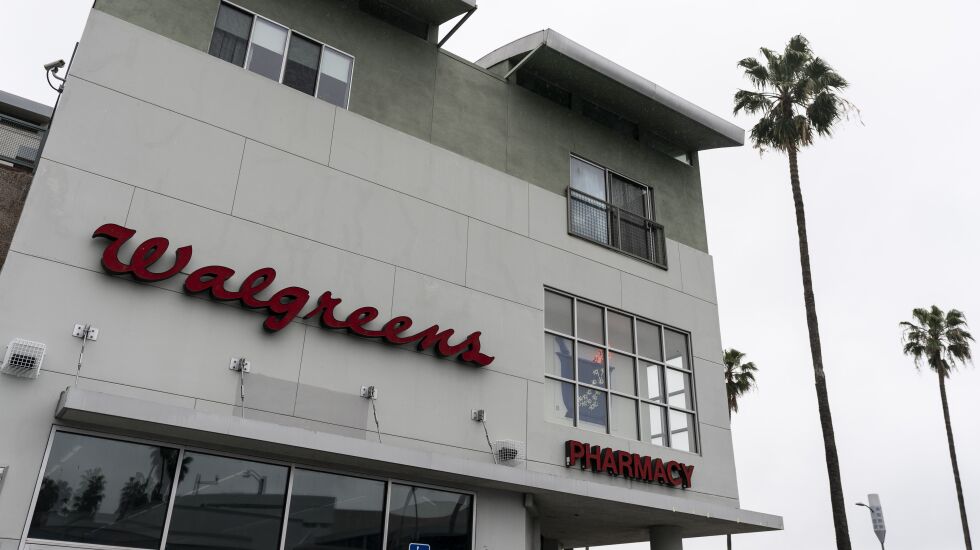
Ever since the world learned that Deerfield-based Walgreens was scuttling plans to sell an abortion pill in 21 states, all eyes have been on the health care giant and its CEO, Rosalind Brewer.
Brewer, who has held the top spot for two years, is one of only about 50 women currently leading a Fortune 500 company.
Walgreens has since adjusted its language surrounding its plans, now saying it will distribute the drug, mifepristone, in states where it is legal to do so. But the pressure is still on the company and on its CEO — arguably more so because of her gender. Reproductive justice advocates have said that, as a woman, Brewer should be more of an activist-leader and fight for women’s choices.

Many C-suite watchers say that Brewer should be viewed solely as a genderless executive who is simply executing the direction dictated by a board of trustees. It’s the CEO’s job, after all, to mitigate risk, and the move came after several Republican attorneys general wrote a collective letter to the pharmacy giant saying they would take it to court — an expensive proposition.
These days, CEOs no longer answer solely to shareholders. After the document was leaked, #BoycottWalgreens began trending on Twitter, Walgreens stock price dropped, and California Gov. Gavin Newsom said the state would not renew a lucrative contract with the retailer. Shoppers either railed for or against the decision.
Running a Fortune 500 company is not a democracy, but it seems some customers wish it were. As Walgreens is dragged deeper into a Venn diagram of medicine, politics and profits, some observers say that Brewer is being held to an impossible standard that men in similar positions aren’t expected to consider.
For Walgreens, “the challenge is, their reputation is one of their most important assets,” said Steve Sauerwald, a professor at the College of Business Administration at the University of IllinoisChicago. “All this media criticism really damages the reputation.”
Sauerwald, who researches CEO activism and board influence, doesn’t think the reputation damage to Walgreens is long term. He adds that the perception of “damage” depends on whom you’re asking.
“Research also shows that after a while this anger goes away, but it certainly is not good in the short term,” he said.
Even so, in just one week there has been tremendous fallout.
“Losing the $54 million contract with California is not something to glance over,” said Kadyn Kim, an equity analyst at Morningstar who is covering the company. “But Walgreens’ top line for fiscal 2022 was over $132 billion, so we don’t anticipate any meaningful changes to our model or assumptions from this right now.”
Still, said Kim, “this is a sensitive situation, and given the size of California and the number of Walgreens locations that exist in the state [over 550], further actions from the governor could be material and make us reevaluate our forecast. But for now, there is uncertainty of potential future scenarios.”
The pharmaceutical in the center of this political quagmire is mifepristone, the first in a two-drug series that used in tandem causes a medication abortion. (This is not to be confused with the emergency contraction drug colloquially named “Plan B.” Mifepristone is not recommended for use as emergency contraception).
Mifepristone has uses outside of abortion; it is often prescribed after a miscarriage has already occurred. The second drug in the series, misoprostol, also has several uses; however, only mifepristone is subject to the special regulatory framework implemented by the U.S. Food and Drug Administration.
The abortion pill regimen accounts for more than half of all abortions in the United States — some 53% as of 2022 — according to the Guttmacher Institute.
Until recently, mifepristone was offered in person by a small subset of doctors or clinics. As of January, the FDA cleared a path for pharmacies to distribute mifepristone. Pharmacies, in turn, have to apply to do so, indicating they know the rules governing safe distribution of this medication. Walgreens, CVS and other pharmacies all indicated they would apply for distribution rights, but Walgreens is the first to get caught up publicly in legal maneuverings around the abortion pill.
Rather than prematurely distributing the drug in Republican-led states, Walgreens is waiting on case law to inform its own decision, and ultimately, to lead the way.
“Walgreens has never distributed this pill,” said Kirsten Moore, director of Washington, D.C.-based Expanding Medication Abortion Access Project. “In my opinion, it got blown up out of all proportion. They said: We’ll let litigation play out. As an advocate, it was disappointing to see that. But they’re a business, and they’re a risk-averse business.”
Walgreens did not respond to WBEZ’s request for comment. The company has said it will continue to take steps to sell mifepristone in “jurisdictions where it is legal and operationally feasible.”
Adrienne Samuels Gibbs is a Chicago-based freelance journalist.







